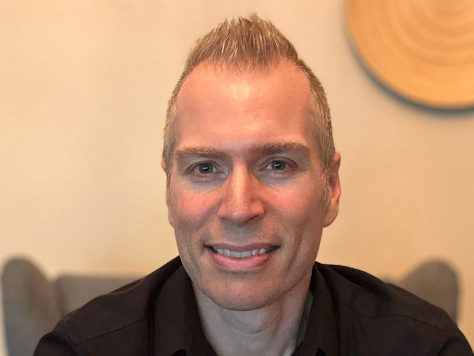Understanding post-traumatic stress disorder (PTSD) can be challenging, especially when it interacts with rigid beliefs about the world. One such belief, the “just world” fallacy, can significantly impact how individuals experience and cope with PTSD. This blog post explores how this fallacy—the idea that people get what they deserve—can exacerbate PTSD symptoms. By diving into this topic, we can shed light on the complexities of PTSD and offer insights for those affected by trauma.
Note: The information in this post is for educational purposes only and does not substitute for mental health care from a licensed provider. If you are experiencing a mental health crisis or emergency, call 988 or 911 for all other emergencies.

Nate Van Heuveln | Pre-Licensed Psychotherapist & Consultant | 12/22/2024

The ‘Just World’ Fallacy Explained
The “just world” fallacy is the belief that the world is fundamentally fair, where good things happen to good people and bad things happen to bad people (APA, 2023). While there is some truth to the idea that positive actions can lead to favorable outcomes, adhering too rigidly to this belief can be harmful. For instance, someone might believe that a person who experiences a serious illness must have done something to deserve it, ignoring the random nature of such events. For individuals with PTSD, this fallacy can create a sense of injustice and self-blame, which can worsen their symptoms (Resick, 2024).
PTSD and the ‘Just World’ Belief
Individuals with PTSD may find that their symptoms, such as intrusive thoughts or heightened anxiety, become more intense due to their belief in a just world because it can increase feelings of guilt and self-blame. This conflict may increase their trauma symptoms and complicate the healing process.
Case Study: A Parent’s Trauma
Consider a parent whose child is injured in a shooting. After the traumatic event, the parent develops PTSD. The belief in a just world might lead them to internalize their child’s injury as a consequence of their own perceived failures, like choosing to live in a “bad” neighborhood. This self-blame can reinforce the trauma, making recovery more difficult. Therapeutic approaches, such as Cognitive Processing Therapy (CPT), can help these parents reframe their beliefs and reduce the burden of self-blame, thereby make recovery more manageable.
The Reality of Life’s Unpredictability
Life does not always adhere to our expectations of fairness. As filmmaker Stanley Kubrick stated, “The most terrifying fact about the universe is not that it is hostile but that it is indifferent.” This underscores what is emphasized in CPT—that good people can face terrible events, and those who might not seem deserving can experience positive outcomes. Clinging to the “just world” belief in the aftermath of trauma can undermine recovery by perpetuating feelings of injustice and self-blame to a degree that perpetuates PTSD symptoms.
Challenging Harmful Beliefs
In PTSD treatment, particularly through Cognitive Processing Therapy (CPT), one goal is often to challenge distorted beliefs, such as the “just world” myth, as a way to begin managing symptoms. What this might look like in therapy, for one example, is eventually being able to replace “it was my fault” with something more realistic, such as “there was no way I could have known the accident was going to happen.” By addressing rigid beliefs, individuals can gain better control over their symptoms and work towards recovery more effectively.
Conclusion
Albert Camus wrote in The Stranger, “I opened myself to the gentle indifference of the world,” a sentiment that aligns with the goals of Cognitive Processing Therapy (CPT). CPT helps individuals recognize that painful and unfair experiences can happen to good people, challenging the “just world” fallacy and other distorted beliefs. By confronting these rigid narratives, individuals can make significant progress in their PTSD recovery.
Seeking Treatment for PTSD
If you or someone you know is struggling with PTSD, consider seeking out a qualified mental health counselor who has experience in Cognitive Processing Therapy (CPT) as a way to challenge and change harmful beliefs. Recovery is possible. I know because I’ve seen firsthand the power of how reshaping the way we view ourselves and the world can help to reduce PTSD symptoms.
Join the Discussion
Leave a comment or question below if there is anything you’d like to share. Note, posts on this blog are public-facing and therefore not confidential or anonymous, so take care to avoid typing sensitive information about yourself or others that you would not like others to know.
“If this article is resonating with you, don’t stop here! Subscribe for FREE to my Substack newsletter for a personal take and exclusive insights into my own experiences with career development. (Skip the Pledge option because I’m not accepting pledges.)”
Subscribe for free to my newsletter below to access a deeper dive regarding this article.
(Select the free option when you sign up; Please do not pledge any amount.)

Nate Van Heuveln, Owner, Psychotherapist, & Consultant |Criterion Counseling & Consulting
Click “Book an Appointment” below to reserve a full session with Nate. Standby for email from our office to get you set up in our online system.
Book an appointment


